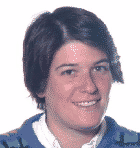
margo «at» eecs·harvard·edu
Margo Seltzer
Margo I. Seltzer is the Herchel Smith Professor of Computer Science and a Harvard College Professor in the Harvard's School of Engineering and Applied Sciences. She received an A.B. degree in Applied Mathematics from Harvard/Radcliffe College in 1983 and a Ph. D. in Computer Science from the University of California, Berkeley, in 1992. She is the author of several widely-used software packages including database and transaction libraries and the 4.4BSD log-structured file system. Dr. Seltzer was a founder and CTO of Sleepycat Software, the makers of Berkeley DB and is now an Architect for Oracle Corporation. Before pursuing an academic career, professor Seltzer spent several years working at startup companies designing and implementing file systems and transaction processing software and designing microprocessors. She is a Sloan Foundation Fellow in Computer Science, a Bunting Fellow, and was the recipient of the 1996 Radcliffe Junior Faculty Fellowship, and the University of California Microelectronics Scholarship. She is recognized as an outstanding teacher and won the Phi Beta Kappa teaching award in 1996 and the Abrahmson Teaching Award in 1999.
Professor Seltzer's research focuses on how to make computer systems better for users. Better can mean faster, more reliable, or easier to use. It can also mean that the pieces of a system, its storage, operating system and applications, work together more gracefully. Her research activities range from designing and building new storage systems to building new operating sytems (e.g., VINO) to developing systems for collecting and tracking provenance of digital data. Professor Seltzer and her colleagues in systems form the Systems Research Group at Harvard. For more detailed information on current projects and activities, consult the SYRAH website.
Publications
| Date | Publication | |
|---|---|---|
| Mar 2, 2012 |
Aleatha Parker-Wood,
Darrell D. E. Long,
Ethan L. Miller,
Margo Seltzer,
Daniel Tunkelang,
Making Sense of File Systems Through Provenance and Rich Metadata,Technical Report UCSC-SSRC-12-01, March 2012. [Scalable File System Indexing] [Dynamic Non-Hierarchical File Systems] [HECURA: Scalable Data Management] |
Click here for a list of recent collaborators.

